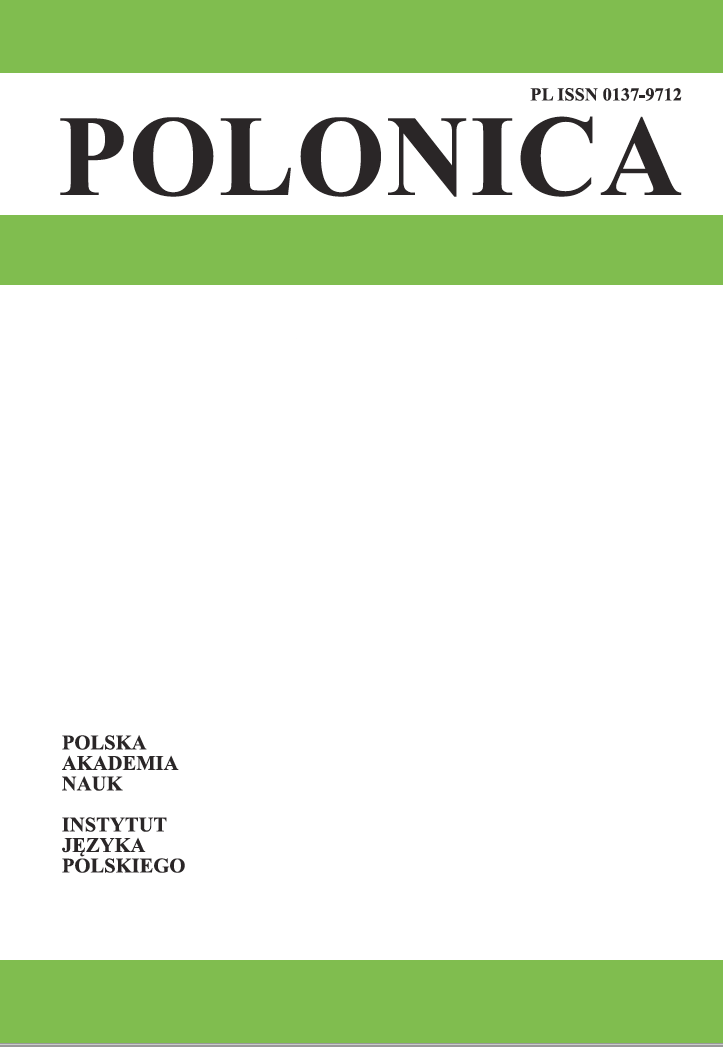Abstract
This is an article that is a part of the discussion on the formation of the Old Polish text. The author examines the causes of the emergence of specific, irregular, exceptional forms, while pointing out a variety of sources: it can be both writer/copyist error, unfamiliarity of the missing source or, finally, memory usage in the drafting of the text. Adjudicating on entering text from the memory needs to be cautious and made with the proviso, that these are arrangements which may be varied each time when it detects a source for the non-repetitive text. It should also be taken into consideration that not every source of that irregularity must exclude the aspect of memory. It’s more about taking into account such a possibility than proving that a particular, specific version is the result of input from memory. The repetitive irregularities in relation to other versions of the text indicate that a different form could be the result of writing it from memory. Although the memory factor is difficult to examine and not always a certain element of the analysis, as the source of the text irregularities may be found (lost editing), this factor can not be underestimated, especially when there are indications telling us different, for example: large occurrence of specific construction or text similarity relative to another verse from the Bible.
References
Mejor M., 2000, Antyczne tradycje średniowiecznej praktyki pisarskiej. Subskrypcje późnoantycznych koodeksów, Warszawa 2000.
Mika T., 2013, Genetyczna wielowarstwowość i złożoność tekstów staropolskich a ich badania historycznojęzykowe. Rekonesans, Biuletyn Polskiego Towarzystwa Językoznawczego 68.
Rojszczak - Robińska D., 2012, Jak pisano Rozmyślanie przemyskie, Poznań.
SŁP: Słownik łacińsko-polski, red. M. Plezia, reprint: Warszawa 1999, t. I–V.
Vintr J., 1986, Die älteste tschechische Psalterübersetzung, Wien.
Wójcik R., 2006, Opusculum de arte memorativa Jana Szklarka. Bernardyński traktat mnemotechniczny z 1504 roku, Poznań.
Wujek: Biblia to jest Księgi Starego i Nowego Testamentu, z łacińskiego na język polski przełożona przez Ks. D. Jakóba Wujka, Warszawa 1960.
